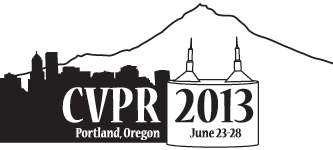-
Adaptive Compressed Tomography Sensing
AbstractOne of the main challenges in Computed Tomography (CT) is how to balance between the amount of radiation the patient is exposed to during scan time and the quality of the CT image. We propose a mathematical model for adaptive CT acquisition whose goal is to reduce dosage levels while maintaining high image quality at the same time. The adaptive algorithm iterates between selective limited acquisition and improved reconstruction, with the goal of applying only the dose level required for sufficient image quality. The theoretical foundation of the algorithm is nonlinear Ridgelet approximation and a discrete form of Ridgelet analysis is used to compute the selective acquisition steps that best capture the image edges. We show experimental results where for the same number of line projections, the adaptive model produces higher image quality, when compared with standard limited angle, non-adaptive acquisition algorithms.
Related Material
[pdf][bibtex]@InProceedings{Barkan_2013_CVPR,
author = {Barkan, Oren and Weill, Jonathan and Averbuch, Amir and Dekel, Shai},
title = {Adaptive Compressed Tomography Sensing},
booktitle = {Proceedings of the IEEE Conference on Computer Vision and Pattern Recognition (CVPR)},
month = {June},
year = {2013}
}
These CVPR 2013 papers are the Open Access versions, provided by the Computer Vision Foundation.
Except for the watermark, they are identical to the accepted versions; the final published version of the proceedings is available on IEEE Xplore.
Except for the watermark, they are identical to the accepted versions; the final published version of the proceedings is available on IEEE Xplore.
This material is presented to ensure timely dissemination of scholarly and technical work.
Copyright and all rights therein are retained by authors or by other copyright holders.
All persons copying this information are expected to adhere to the terms and constraints invoked by each author's copyright.

